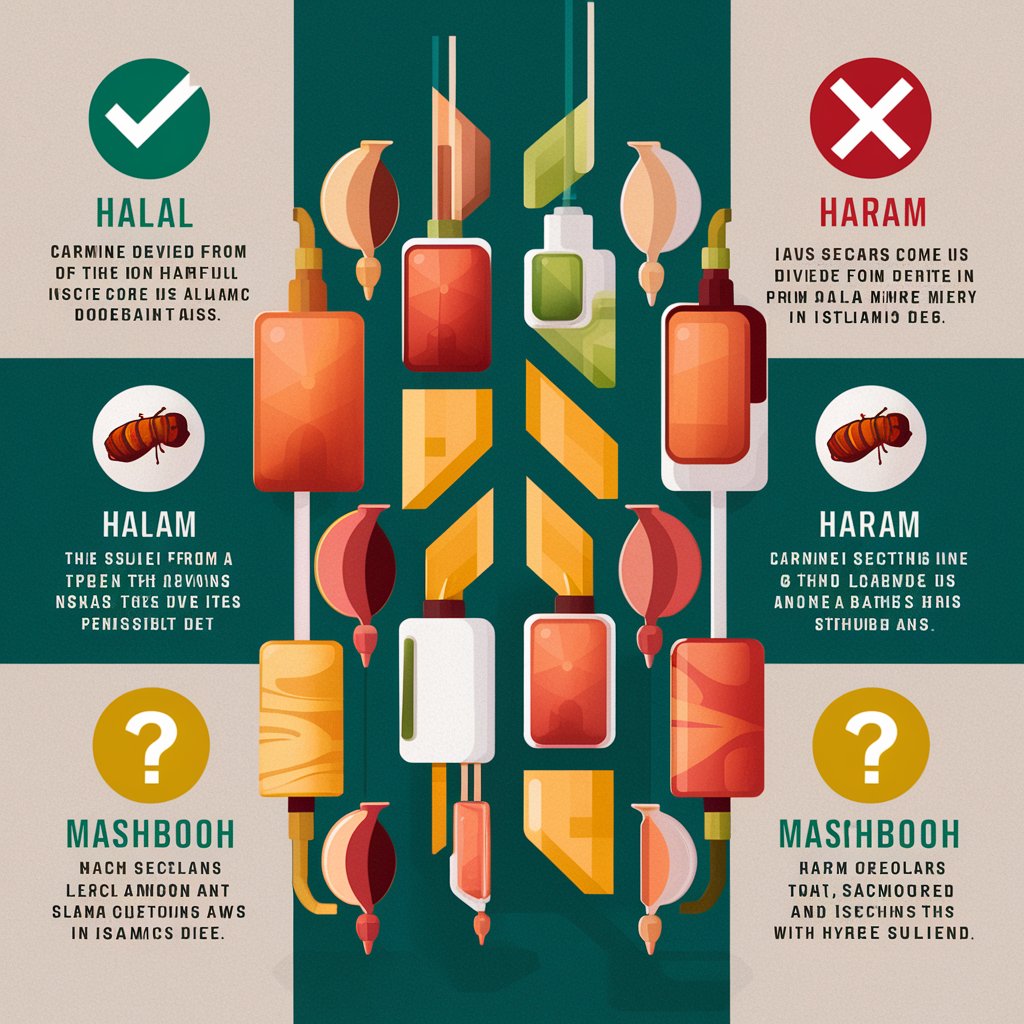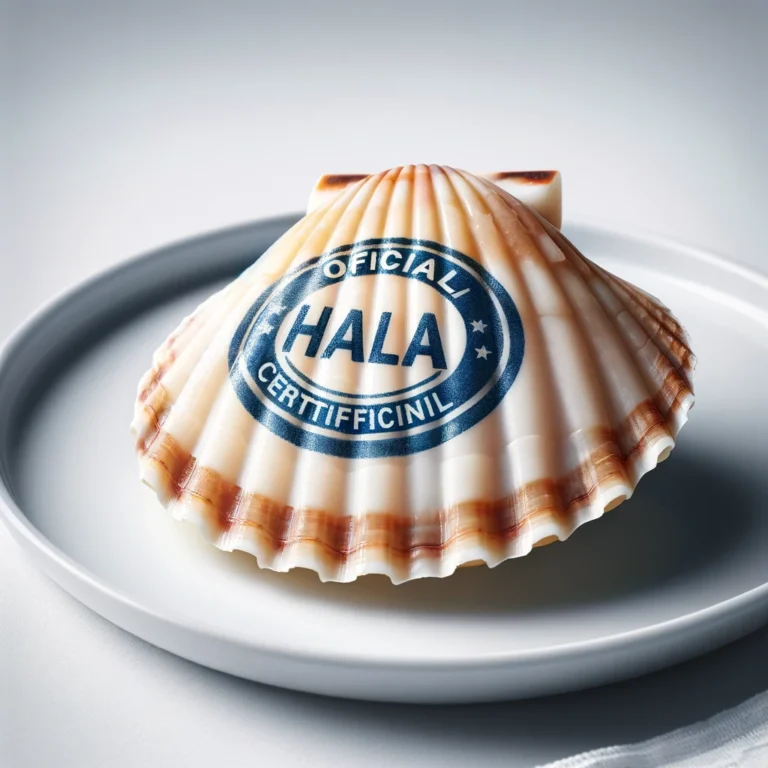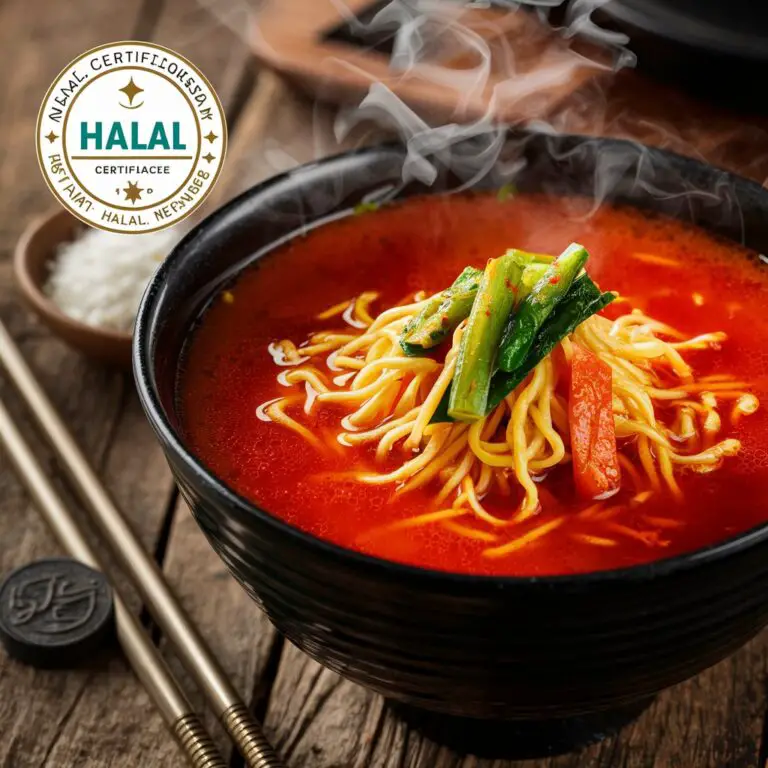Is Carmine Halal?
As an expert in the field of food science and Islamic dietary laws, I have conducted extensive research on the topic of carmine and its permissibility in a halal diet. In this article, I will provide a comprehensive analysis of carmine, its sources, and its status in Islamic jurisprudence.
What is Carmine?
Carmine, also known as cochineal extract or natural red 4, is a red dye derived from the dried bodies of female cochineal insects (Dactylopius coccus). These insects are native to Central and South America and have been used for centuries to produce vibrant red dyes for textiles, cosmetics, and food products.
The primary coloring agent in carmine is carminic acid, which is extracted from the insects through a process involving boiling, drying, and grinding. The resulting pigment is then mixed with other ingredients, such as aluminum or calcium salts, to create a stable and water-soluble dye.
Applications of Carmine in the Food Industry

Carmine is widely used in the food industry to impart a deep red color to various products, including:
- Beverages (e.g., fruit juices, soft drinks)
- Dairy products (e.g., yogurt, ice cream)
- Confectionery (e.g., candy, gummies)
- Baked goods (e.g., cakes, cookies)
- Meat products (e.g., sausages, hamburger patties)
The use of carmine in food products is regulated by national and international food safety authorities, such as the U.S. Food and Drug Administration (FDA) and the European Food Safety Authority (EFSA). These organizations have established acceptable daily intake (ADI) levels for carmine and require its presence to be clearly labeled on food packaging.
Islamic Perspective on Carmine
The permissibility of carmine in a halal diet has been a topic of debate among Islamic scholars and food science experts. The primary concern revolves around the source of the dye—insects—and whether consuming products containing carmine is compatible with Islamic dietary laws.
To determine the halal status of carmine, we must first examine the principles of halal food as outlined in the Quran and the teachings of Prophet Muhammad (peace be upon him).
Principles of Halal Food
- All food is considered halal (permissible) unless explicitly prohibited in the Quran or the authentic teachings of Prophet Muhammad (peace be upon him).
- Prohibited foods include pork, blood, carrion, animals not slaughtered according to Islamic guidelines, and intoxicants.
- Food must be obtained through lawful means and should not cause harm to oneself or others.
Scholarly Opinions on Carmine
Islamic scholars have expressed different opinions regarding the permissibility of carmine based on their interpretations of Islamic texts and understanding of the dye’s production process.
Opinion 1: Carmine is Halal
Some scholars argue that carmine is halal because insects are not explicitly mentioned among the prohibited foods in the Quran or the authentic teachings of Prophet Muhammad (peace be upon him). They also point out that the process of extracting carmine from cochineal insects involves a significant transformation, which may render the final product permissible.
Opinion 2: Carmine is Haram
Other scholars maintain that carmine is haram (forbidden) because it is derived from insects, which they consider to be impure and unsuitable for consumption. They argue that the transformation process does not negate the impermissible origin of the dye and that consuming products containing carmine goes against the spirit of Islamic dietary laws.
Opinion 3: Carmine is Mashbooh
A third group of scholars classifies carmine as mashbooh (doubtful or questionable) due to the lack of clear textual evidence regarding its permissibility. They advise Muslims to exercise caution and avoid consuming products containing carmine when possible, especially if alternative halal options are available.
| Opinion | Reasoning |
|---|---|
| Halal | Insects not explicitly prohibited; significant transformation process |
| Haram | Derived from insects, considered impure; transformation does not negate impermissible origin |
| Mashbooh | Lack of clear textual evidence; caution advised, especially when halal alternatives are available |
Conclusion
The permissibility of carmine in a halal diet remains a complex issue with differing scholarly opinions. While some argue that carmine is halal due to the lack of explicit prohibition and the significant transformation process, others maintain that it is haram because of its insect origin. A third group classifies carmine as mashbooh, advising caution and avoidance when possible.
As an expert in the field, my recommendation to Muslim consumers is to:
- Be aware of the presence of carmine in food products by carefully reading ingredient labels.
- Consider the opinions of trusted Islamic scholars and their reasoning behind the permissibility of carmine.
- When in doubt, opt for food products that do not contain carmine, especially if halal alternatives are readily available.
Ultimately, the decision to consume or avoid products containing carmine is a matter of personal conviction and adherence to one’s understanding of Islamic dietary laws. It is essential for Muslim consumers to make informed choices based on their beliefs and the guidance of knowledgeable scholars.
As the food industry continues to evolve and new ingredients emerge, ongoing research and collaboration between food science experts and Islamic scholars will be crucial in providing clear guidance on the halal status of various food additives and ensuring that Muslim consumers can make informed dietary choices in line with their faith.








